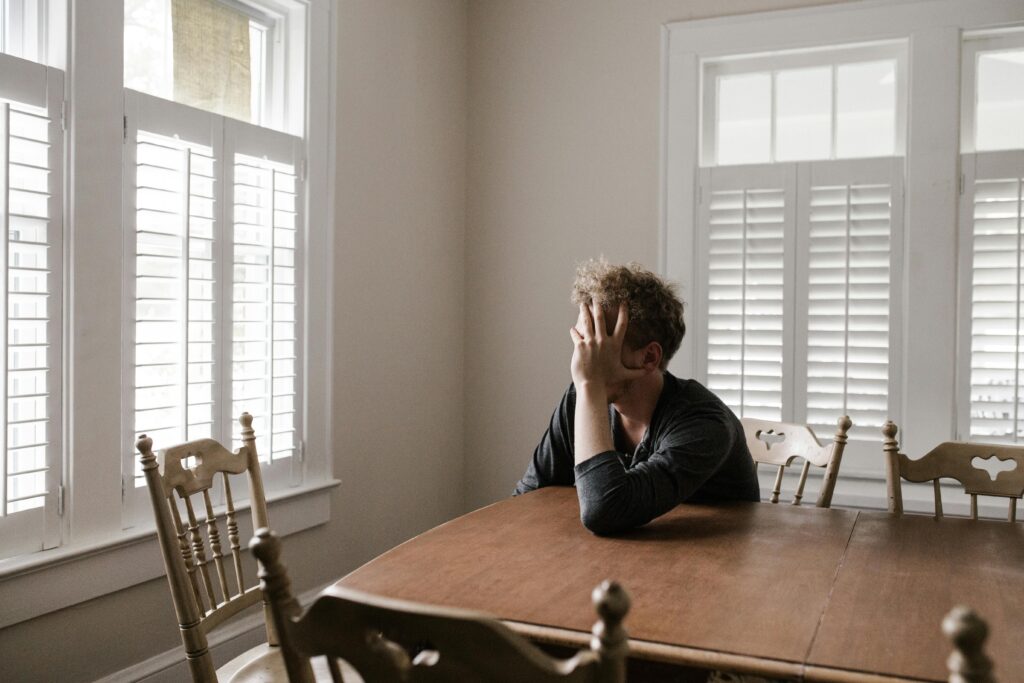Masturbation is an addiction? It’s a question that many people hesitate to ask, but understanding the line between a healthy habit and compulsive behaviour is vital for mental and emotional well-being. Masturbation is a natural part of human behaviour; however, when it becomes excessive or begins to interfere with daily life, relationships, or mental health, it might be time to re-evaluate its impact.
Compulsive masturbation can lead to feelings of guilt, shame, and frustration, creating a cycle that feels hard to break. It may serve as a way to cope with stress, boredom, or loneliness, but instead of providing relief, it often exacerbates the underlying issues. This behaviour can become a dependency, where the habit dominates thoughts and actions, making it difficult to focus on other aspects of life.
Therapy offers a safe and effective way to address this issue. It helps individuals understand the root causes of their behaviour, recognise triggers, and develop healthier coping mechanisms. Through therapy, you can break free from the cycle of compulsive behaviour and regain control over your actions and emotions.
In this article, we at The Freedom Solution will explore the signs of compulsive masturbation, the psychological effects it can have, and how therapy can be a powerful tool in overcoming this challenge. By seeking help and implementing positive changes, you can take steps toward a healthier, more balanced life.
Understanding Compulsive Behaviour And Its Effects
Compulsive behaviour occurs when an action, such as masturbation, becomes repetitive and feels impossible to control. While masturbation is a normal part of human sexuality, it crosses the line into addiction when it starts to negatively impact daily life, mental health, or relationships. Understanding this behaviour is the first step toward managing it.
What Causes Compulsive Behaviour?
Compulsive masturbation often stems from deeper emotional or psychological issues. Stress, anxiety, depression, or unresolved trauma can act as triggers, leading individuals to turn to this behaviour as a form of temporary relief. Over time, it becomes a coping mechanism, masking underlying issues rather than addressing them. This creates a cycle where the habit feeds on the very problems it was intended to solve.
Impact on Daily Life
When compulsive behaviour takes hold, it can disrupt routines and responsibilities. Time spent on the habit can interfere with work, studies, or relationships. Social interactions may become strained as individuals isolate themselves, leading to feelings of guilt and shame. The habit may dominate thoughts, leaving little mental space for other priorities.
Mental and Emotional Consequences
Compulsive masturbation often leads to a rollercoaster of emotions. While it may provide short-term relief, it is frequently followed by feelings of guilt, frustration, or sadness. These negative emotions can erode self-esteem, making it harder to break free from the cycle. Over time, this can contribute to anxiety, depression, and a sense of being trapped.
Physical Effects
Although less common, excessive masturbation can also lead to physical issues, such as soreness or fatigue. These effects, combined with the emotional toll, can significantly diminish overall well-being. So when the question ‘masturbation is an addiction?’ arises, it just could be!
Compulsive masturbation is more than just a habit; it is a behavioural issue that can affect every aspect of life. By recognising its impact and seeking help, individuals can begin to address the underlying causes and move toward healthier coping strategies. Therapy plays a crucial role in this journey, offering tools and support to break free from the cycle and regain control.

Masturbation Is An Addiction?: Recognising The Signs And Seeking Help
Is masturbation an addiction? This question arises when the behaviour begins to interfere with one’s daily life and mental well-being. Recognising the signs of compulsive behaviour is essential in understanding when it’s time to seek help. Here are some key indicators:
- Loss of Control: One of the most common signs of compulsive masturbation is an inability to stop or reduce the behaviour, even when it disrupts your life. You may feel a strong urge to engage in the habit despite wanting to quit or cut back.
- Negative Impact on Daily Life: When masturbation begins to interfere with daily responsibilities or routines, it’s a red flag. Time spent on the habit can lead to neglecting work, studies, or relationships. Missing important commitments or feeling unmotivated to accomplish tasks are clear indicators of a problem.
- Emotional Distress: Feelings of guilt, shame, or frustration often accompany compulsive masturbation. You might find yourself stuck in a cycle where the habit temporarily relieves stress or anxiety, only to leave you feeling worse afterward. This emotional rollercoaster can take a toll on your mental health.
- Strained Relationships: Excessive focus on this behaviour can create distance in personal relationships. Avoiding social interactions, becoming withdrawn, or struggling to communicate effectively with loved ones are common issues that arise.
- Dependency on the Habit: Using masturbation as a primary way to cope with stress, boredom, or negative emotions can signal dependency. When it becomes a go-to method for handling challenges, it’s likely masking deeper emotional or psychological issues.
When to Seek Help
If you recognise these signs in yourself, seeking professional support can be a transformative step. Therapy provides a safe and non-judgmental space to explore the reasons behind compulsive behaviour and offers strategies to regain control. Therapists can help identify triggers, address emotional challenges, and develop healthier coping mechanisms.
Recognising the signs of addiction is the first step toward change. Seeking help isn’t a sign of weakness; it’s a powerful decision to prioritise your mental and emotional well-being. Therapy can provide the tools and support needed to break the cycle and build a healthier future.
How Therapy Can Help Break the Cycle of Compulsive Behaviour
Therapy is a powerful tool for addressing compulsive masturbation by helping individuals understand their behaviour and providing practical strategies to regain control. Through therapy, individuals can uncover the underlying causes of their actions, identify triggers, and develop healthier coping mechanisms. Here’s how therapy can help:
- Understanding the Root Causes: Compulsive masturbation often stems from deeper emotional or psychological issues, such as stress, anxiety, depression, or unresolved trauma. A therapist helps you explore these root causes, providing insights into why the behaviour developed and how it became a coping mechanism. By addressing these core issues, you can begin to dismantle the cycle of dependency.
- Identifying Triggers: Triggers are the emotions, situations, or thoughts that lead to compulsive behaviour. Therapy helps you recognise these triggers, whether they stem from boredom, loneliness, or specific stressors. By understanding what prompts the habit, you can prepare to respond in healthier ways.
- Developing Healthy Coping Mechanisms: A key focus of therapy is replacing unhealthy behaviours with positive habits. A therapist will work with you to develop strategies like mindfulness exercises, physical activity, or creative outlets to manage stress and emotions. These alternatives create a healthier response to triggers, reducing the urge to revert to old patterns.
- Setting Goals and Boundaries: Therapy provides structure by helping you set realistic goals for reducing and eventually eliminating compulsive behaviours. This might involve gradually cutting back or implementing boundaries, such as limiting specific times or situations where the habit occurs. These small, manageable steps lead to long-term success.
- Providing Accountability and Support: Regular therapy sessions create a consistent support system, offering a space to discuss progress, setbacks, and successes. A therapist provides encouragement and guidance, keeping you accountable as you work toward breaking the cycle.
- Rebuilding Confidence: Compulsive behaviour often damages self-esteem. Therapy focuses on rebuilding your confidence by helping you recognise your progress and empowering you to take control of your actions.
Therapy is an essential resource for addressing compulsive masturbation. It equips individuals with the tools and strategies needed to overcome the behaviour, while fostering personal growth and a healthier, more balanced life.

Steps To Take Control And Build Healthier Habits
Breaking free from compulsive behaviours like masturbation requires a combination of self-awareness, practical strategies, and consistent effort. Here are actionable steps to regain control and replace unhealthy habits with positive ones:
- Acknowledge the Problem: The first step to change is recognising that the behaviour has become problematic. Reflect on how it affects your daily life, relationships, and mental health. Acknowledging the issue is a sign of strength, not weakness, and sets the foundation for meaningful change.
- Identify Your Triggers: Understanding what drives the behaviour is essential. Are you turning to the habit during moments of stress, boredom, or loneliness? Identify these triggers and think about how they influence your actions. Keeping a journal to track when and why the behaviour occurs can provide valuable insights.
- Replace the Habit with Positive Activities: Developing healthier coping mechanisms is key to breaking the cycle. Replace the time and energy spent on the habit with constructive activities such as exercise, mindfulness, creative hobbies, or socialising with friends. These alternatives help manage triggers while improving your overall well-being.
- Set Boundaries and Goals: Create specific, realistic goals for reducing and eventually eliminating the behaviour. For example, you might start by limiting the frequency of the habit or avoiding triggers altogether. Gradually increasing these boundaries will help you build confidence and maintain progress.
- Seek Professional Support: Therapists and counsellors are trained to help individuals struggling with compulsive behaviours. Therapy provides a safe space to discuss challenges, address emotional issues, and develop tailored strategies for overcoming the habit. Seeking help shows commitment to self-improvement and mental health.
- Build a Support Network: Share your goals with trusted friends or family members who can encourage you and hold you accountable. Surrounding yourself with supportive people makes it easier to stay on track and maintain your progress.
- Be Patient with Yourself: Breaking a habit takes time and effort. Celebrate small victories and learn from setbacks without being too hard on yourself. Change is a journey, and each step forward brings you closer to your goal.
By following these steps, you can regain control of your actions, build healthier habits, and create a more balanced, fulfilling life. Therapy, support, and a proactive mindset are invaluable tools on this path.
Taking the First Step Toward Freedom
Breaking free from compulsive behaviours like masturbation can feel overwhelming, but recognising the issue and taking the first step is a powerful act of self-care. If you’ve ever questioned, “Masturbation is an addiction?”, and found that it’s affecting your life, now is the time to seek support and take control of your actions.
At The Freedom Solution, we understand that this journey is deeply personal. That’s why we provide compassionate and tailored therapy designed to address compulsive behaviours, helping you uncover the root causes and replace unhealthy habits with positive ones. Our approach focuses on creating a safe, judgement-free space where you can work toward lasting change.
Through therapy, you’ll learn how to identify triggers, develop healthy coping mechanisms, and rebuild your confidence. Whether you’re seeking to manage stress, improve relationships, or simply regain balance in your life, we’re here to guide you every step of the way.
Remember, you don’t have to face this challenge alone. Seeking professional help isn’t a sign of weakness; it’s a commitment to your well-being and a brighter future.
Take the first step today. Contact The Freedom Solution to learn how our personalised therapy services can help you overcome compulsive behaviours and build a healthier, more fulfilling life. Visit our website for more information. Your journey to freedom starts here.








Leave A Comment